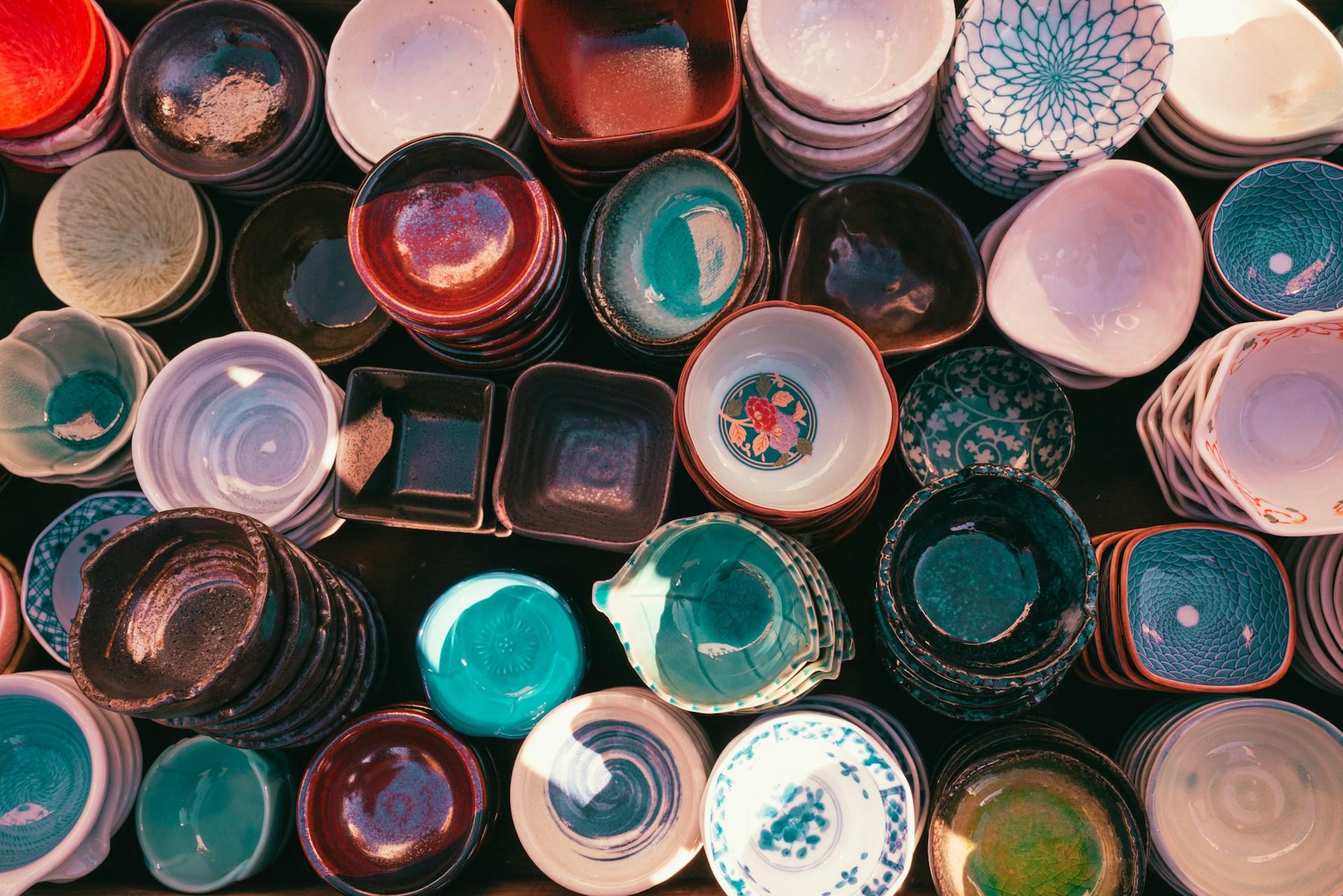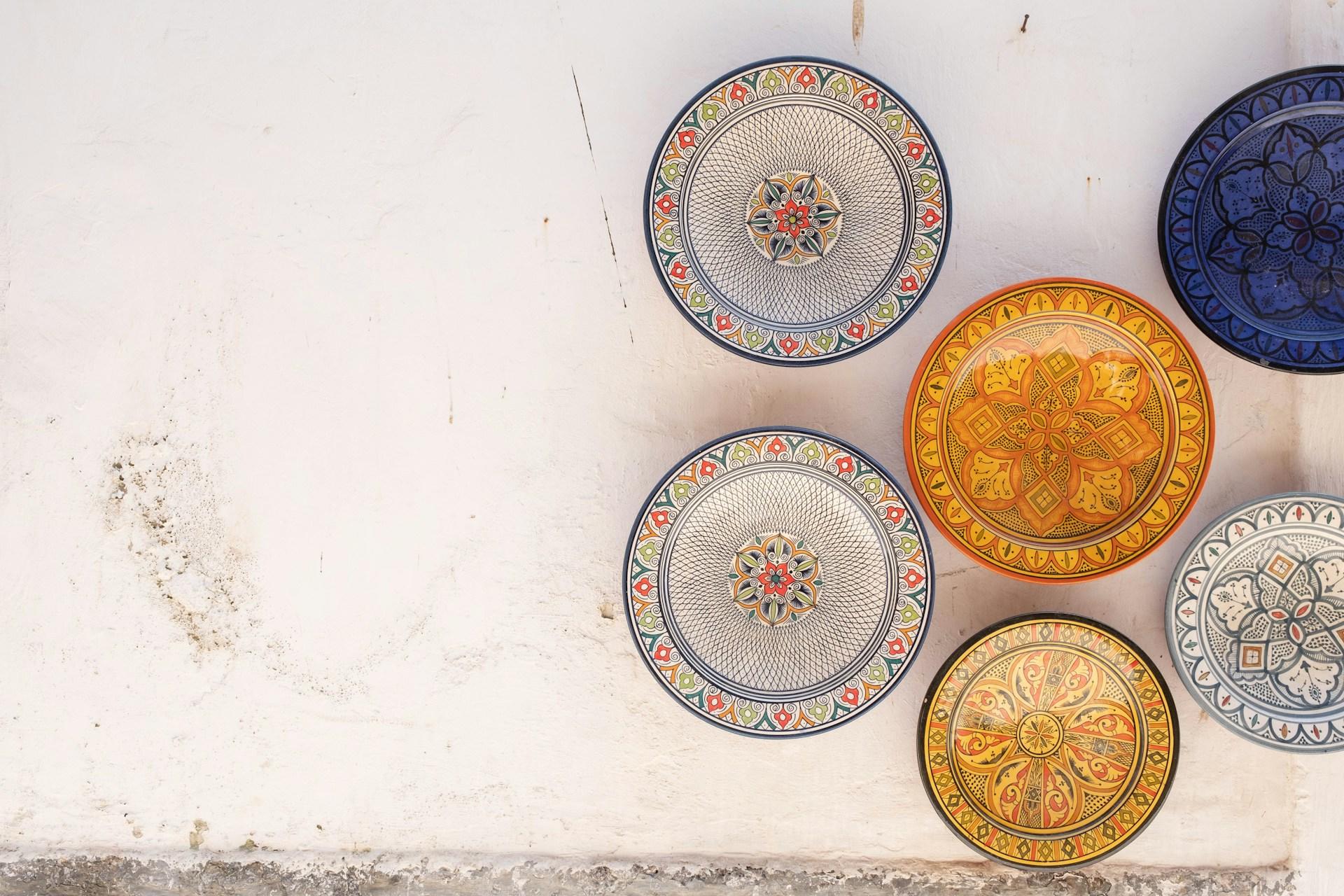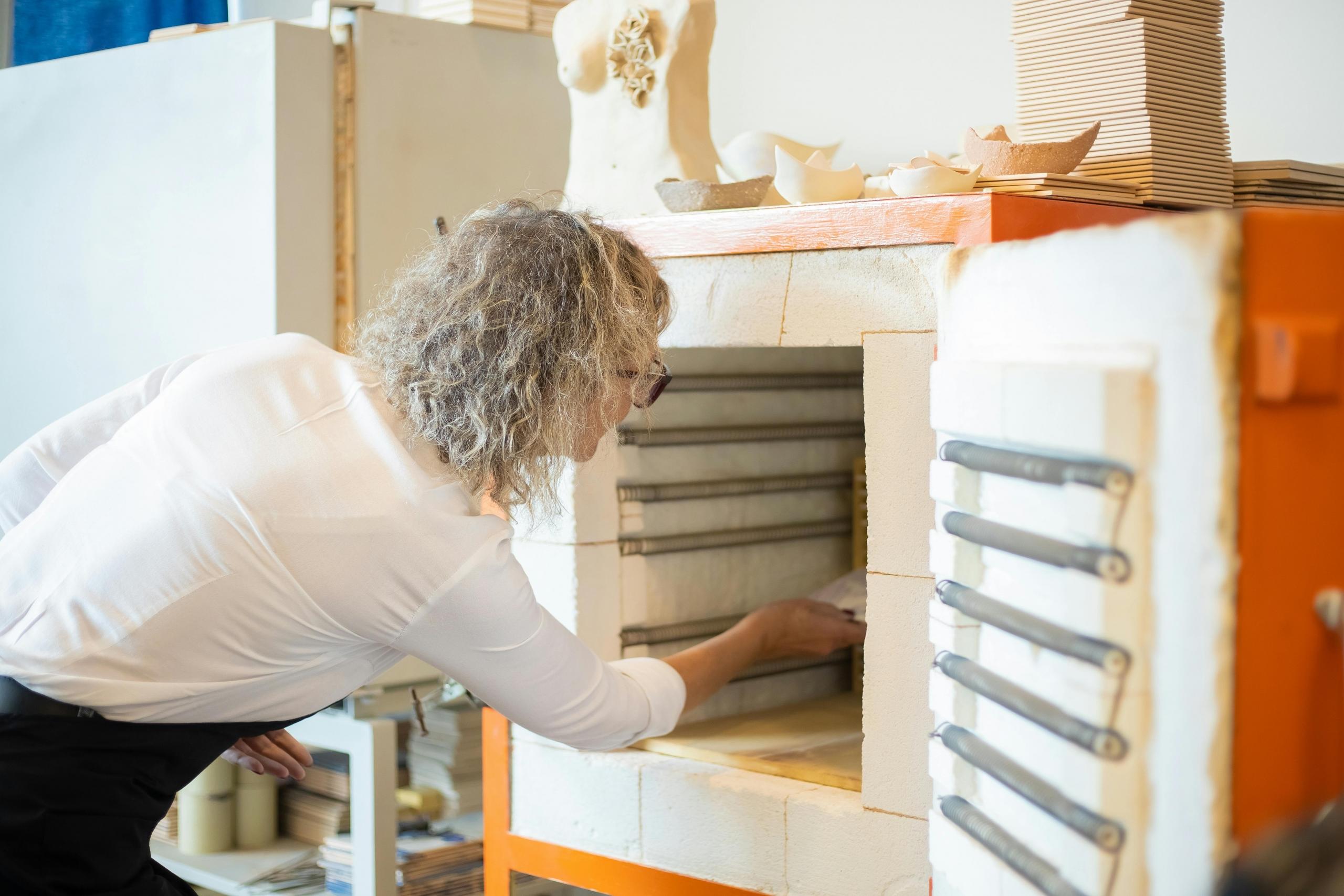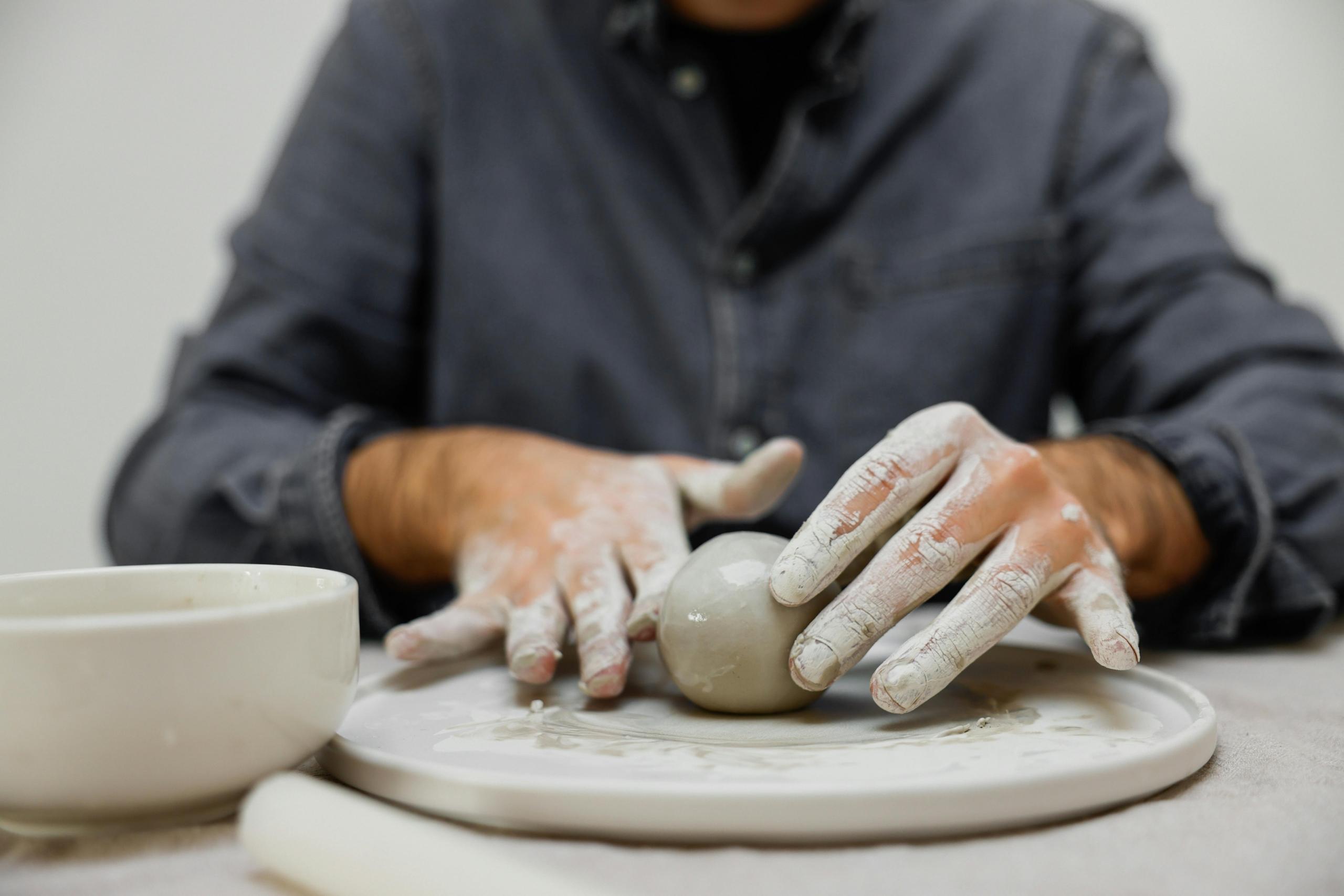Welcome to the world of pottery! Whether you're a beginner or experienced artist, pottery lessons are an excellent way to unleash your creativity and master the art of ceramics. In this article, we'll explore everything you'll need to embark on your pottery journey.
Pottery is not just about throwing clay on a wheel. There are endless possibilities for pottery painting, allowing you to express your unique style and creativity. In this article, we'll also delve into some pottery painting ideas that will inspire and challenge you.
So, let's dive into the world of pottery and discover the joy of creating beautiful ceramics!

Pottery Workshops to Explore
Pottery classes come in various formats to cater to different needs and preferences. Here are some common types of pottery classes you can find:
- Beginner's Pottery Classes: These classes are perfect for those who are completely new to pottery. They provide a solid foundation in basic techniques such as hand-building, wheel-throwing, and glazing. The focus is on building skills and gaining confidence in working with clay.
- Intermediate Pottery Classes: If you already have some experience with pottery, intermediate classes are a great way to expand your knowledge and refine your techniques. You will learn more advanced hand-building and wheel-throwing techniques, explore different surface decorations, and experiment with more complex forms.
- Advanced Pottery Classes: For those looking to take their pottery skills to the next level, advanced classes offer a challenging and immersive learning experience. These classes are designed for experienced potters who want to explore advanced techniques, master specific pottery styles, and push the boundaries of their creativity.
- One-Day Workshops: If you're looking for a shorter commitment or want to try pottery without enrolling in a long-term class, one-day workshops are a perfect option. These workshops usually focus on a specific technique or project and provide a condensed introduction to pottery.
- Online Pottery Classes: In today's digital age, online pottery classes have gained popularity. These classes allow you to learn at your own pace and from the comfort of your own home. Online tutorials and demonstrations guide you through the pottery process, and you can interact with instructors and fellow students through online forums and communities.

Finding Pottery Classes Near You
Finding pottery classes in South Africa is easier than ever, thanks to the internet and social media. Here are some effective ways to locate pottery classes in your area:
- Search Online: Start by searching online using keywords such as "pottery classes near me" or "ceramics classes in [your location]." This will provide you with a list of pottery studios, art centres, and community colleges that offer pottery classes.
- Check Local Art Centres and Community Colleges: Art centres and community colleges often have pottery classes as part of their art curriculum.
- Ask Local Artists and Potters: Reach out to local artists and potters in your area and ask them if they offer pottery lessons or if they can recommend any pottery studios.
- Join Pottery Forums and Online Communities: Joining online pottery forums and communities is a great way to connect with fellow pottery enthusiasts and get recommendations for pottery classes in your area.
- Visit Pottery Studios and Art Fairs: Visit pottery studios and art fairs in your area to get a sense of the local pottery scene. Talk to the artists and potters exhibiting their work and inquire about any upcoming classes or workshops they may be offering.
Remember, each pottery class or studio has its own unique teaching style and atmosphere. Take the time to research and visit different options to find the one that aligns with your goals and preferences.
What to Expect in a Pottery Class
Walking into your first pottery class can be both exhilarating and nerve-wracking. Here's what you can expect in a typical pottery class:
- Introduction and Demonstration: The class will usually start with an introduction to the instructor and fellow students. The instructor will give a brief overview of the class structure, safety guidelines, and the techniques that will be covered. They may also demonstrate a specific pottery technique or project to get you inspired and motivated.
- Hands-on Practice: After the introduction, it's time to get your hands dirty! You will be provided with a block of clay and the necessary tools to start creating. Depending on the class format, you may be introduced to hand-building techniques, wheel-throwing, or both. The instructor will guide you through the process step-by-step, ensuring you have a solid understanding of the techniques and principles.
- Individual Guidance and Feedback: Throughout the class, the instructor will provide individual guidance and feedback to help you improve your skills. They will answer any questions you may have, troubleshoot any issues you encounter, and offer suggestions for improvement. Don't be afraid to ask for help or seek clarification if you're unsure about something.
- Experimentation and Creativity: Pottery classes are all about exploring your creativity and experimenting with different techniques. The instructor will encourage you to think outside the box and push your artistic boundaries. Feel free to try new things, take risks, and embrace the unexpected outcomes. Remember, pottery is as much about the process as it is about the end result.
- Firing and Glazing: Once you have completed your pottery pieces, they will need to go through the firing and glazing process. Firing is the process of heating the pottery in a kiln to harden it and give it its final form. Glazing involves applying a layer of ceramic glaze to the pottery to add colour and a glossy finish. Depending on the class structure, the instructor may guide you through the firing and glazing process or provide instructions for you to do it on your own.
- Celebration and Reflection: At the end of the class, there will usually be a celebration where you and your classmates can admire each other's creations. It's a time to reflect on your journey, celebrate your progress, and appreciate the unique beauty of each pottery piece. Some classes may even organise exhibitions or showcases to display the students' work to a wider audience.

Tools and Materials Needed for Pottery
To embark on your pottery journey, you will need a few essential tools and materials. Here are the basics:
- Clay: The foundation of pottery is clay, and there are different types of clay available depending on your desired outcome. The most common types of clay used for pottery are earthenware, stoneware, and porcelain. Each type has its own unique properties and firing temperature, so it's important to choose the right clay for your intended purpose.
- Potter's Wheel: If you're interested in wheel-throwing, you will need a potter's wheel. There are various types of wheels available, including electric wheels and kick wheels. Electric wheels are more commonly used as they provide consistent speed and are easier to control, especially for beginners.
- Hand-Building Tools: For hand-building techniques, you will need a set of basic hand-building tools. These include a rolling pin, wire cutters, a pottery knife, a sponge, a rib tool, and various shaping tools. These tools help you shape and manipulate the clay to create your desired forms.
- Pottery Kiln: A pottery kiln is essential for firing your pottery pieces. Kilns come in different sizes and types, including electric kilns and gas kilns. Electric kilns are more common in pottery studios and are easier to use, while gas kilns are often used by professional potters and offer more control over the firing process.
- Glazes and Underglazes: Glazes and underglazes add colour and a decorative finish to your pottery. There are numerous glaze options available, including glossy, matte, and textured finishes. Underglazes are used for detailed designs and can be layered or mixed to create unique effects.
- Safety Equipment: Pottery involves working with clay and various materials that can be potentially harmful if not handled safely. It's important to invest in safety equipment such as a dust mask, goggles, and aprons to protect yourself from clay dust and glaze chemicals.
- Additional Tools: Depending on your pottery projects and techniques, you may need additional tools such as clay carving tools, brushes for glazing, texture stamps, and pottery moulds. These tools allow you to add intricate details and textures to your pottery pieces.

The Importance of a Pottery Oven
A pottery oven, also known as a kiln, is an essential tool for pottery. Here are a few reasons why a pottery oven is important:
- Hardening the Clay
- Setting the Glaze
- Determining the Final Look
- Ensuring Durability
- Controlled Firing Process
It plays a crucial role in transforming your clay creations from soft and fragile to hard and durable.
Are you ready to explore the world of pottery and see where your creativity takes you? Embarking on pottery lessons in South Africa is an incredible opportunity to unleash your creativity, learn new skills, and experience the therapeutic benefits of working with clay. Whether you're a complete beginner or have some experience in pottery, there are classes available to suit your needs.
Summarise with AI:















